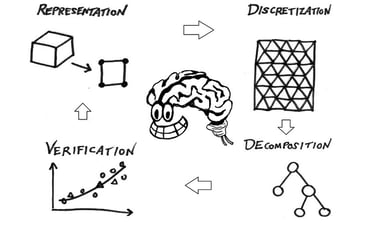9 semanas
3–5 horas por semana
Al ritmo del instructor
Con un cronograma específico
Computational Thinking for Modeling and Simulation
De un vistazo
- Institution MITx
- Subject Informática
- Level Intermediate
- Prerequisites
- Algebra
- Calculus
- Language English
- Video Transcript English
- Associated skillsForecasting, Algebra, Discretization, Computational Thinking, Calculus
¿Quién puede hacer este curso?
Lamentablemente, las personas residentes en uno o más de los siguientes países o regiones no podrán registrarse para este curso: Irán, Cuba y la región de Crimea en Ucrania. Si bien edX consiguió licencias de la Oficina de Control de Activos Extranjeros de los EE. UU. (U.S. Office of Foreign Assets Control, OFAC) para ofrecer nuestros cursos a personas en estos países y regiones, las licencias que hemos recibido no son lo suficientemente amplias como para permitirnos dictar este curso en todas las ubicaciones. edX lamenta profundamente que las sanciones estadounidenses impidan que ofrezcamos todos nuestros cursos a cualquier persona, sin importar dónde viva.¿Te interesa este curso para tu negocio o equipo?
Capacita a tus empleados en los temas más solicitados con edX para Negocios.


